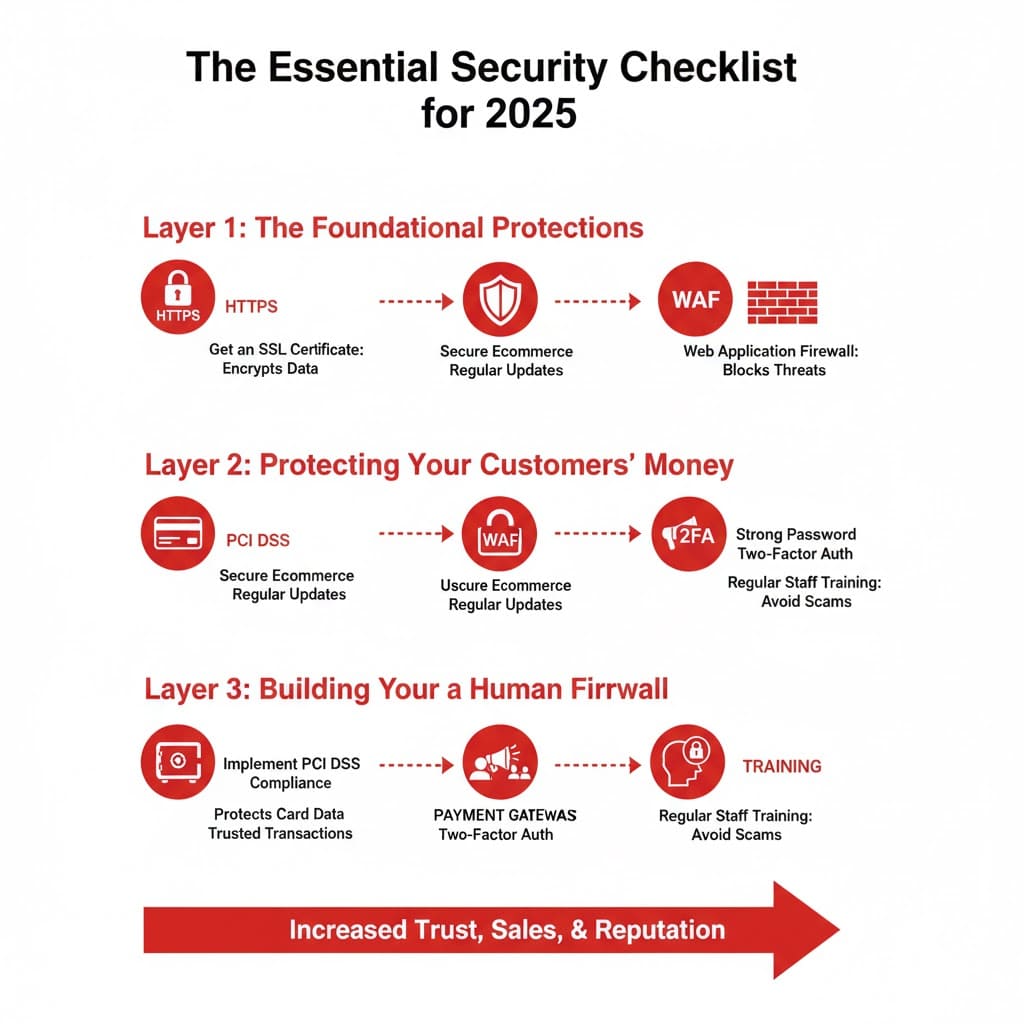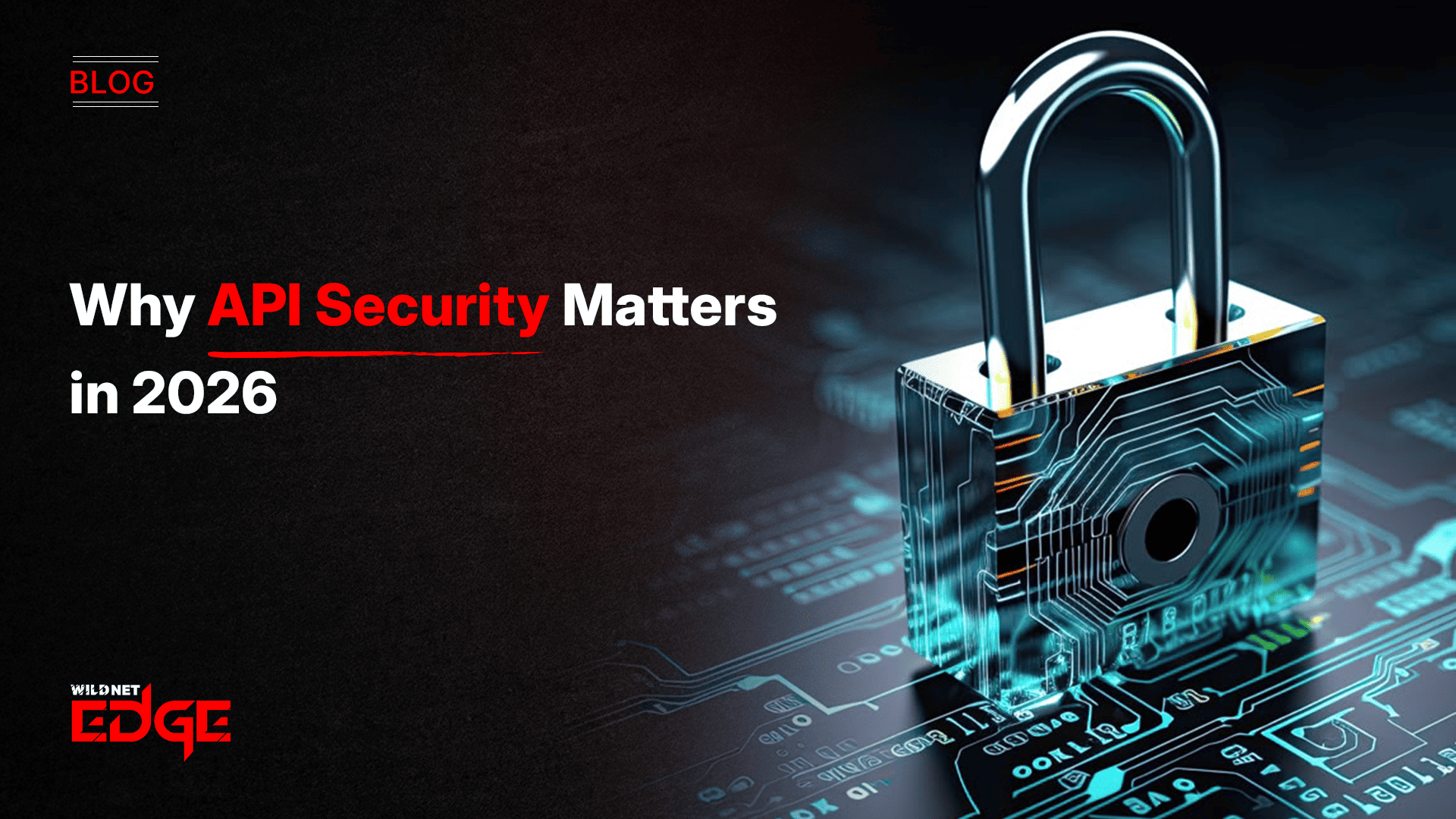Your eCommerce website is your digital storefront. It’s where you build your brand, connect with customers and drive revenue. However, with every transaction, you are also handling sensitive customer data. This makes eCommerce website security one of the most critical responsibilities for any business owner. A single breach can destroy customer trust and your reputation overnight. This guide will provide a clear, actionable plan to protect your online store.
Why eCommerce Website Security is a Top Business Priority
First, let’s be clear: this is not just an IT issue. It is a fundamental business risk. A security breach can lead to devastating financial losses, hefty regulatory fines and a loss of customer loyalty that can take years to rebuild. In today’s market, customers are more aware of data privacy than ever. They need to feel safe when they shop with you.
Therefore, strong cybersecurity for online stores is a powerful competitive advantage. It builds trust, which in turn boosts conversion rates. When customers see that you take their security seriously, they are more likely to complete a purchase and become repeat buyers. Ultimately, investing in security is investing in the long-term health and profitability of your business.

The Essential Security Checklist for 2025
Protecting your online store requires a multi-layered approach. Here are the essential steps every business owner should take.
Layer 1: The Foundational Protections
This is the non-negotiable starting point for all online stores.
- Get an SSL Certificate (HTTPS): An SSL certificate encrypts the data that travels between your customer’s browser and your website. This is what puts the “s” in “https” and displays the padlock icon in the address bar. Without it, you are putting customer data at risk and most web browsers will actively warn users away from your site.
- Choose a Secure eCommerce Platform: The platform you build on matters. Whether you use Shopify, BigCommerce, or a custom solution like Magento, ensure it has a strong security track record. Look for platforms that release regular security patches and updates.
- Use a Web Application Firewall (WAF): A WAF acts like a filter between your website and the internet. It helps block malicious traffic, hacking attempts and other common cyber threats before they can ever reach your store.
Layer 2: Protecting Your Customers’ Money
Payment processing is the most sensitive part of your operation.
- Implement PCI DSS Compliance: The Payment Card Industry Data Security Standard (PCI DSS) is a set of security rules for any organization that handles credit card information. Compliance is mandatory and it involves requirements like encrypting cardholder data and restricting access to it.
- Use Secure Payment Gateways: Never handle credit card data directly on your own servers if you can avoid it. Instead, use trusted and secure payment gateways like Stripe, PayPal, or Braintree. These companies specialize in payment security. They handle the sensitive data in their own secure environment, which significantly reduces your risk and liability.
Layer 3: Building a Human Firewall
Often, the weakest link in your security is human error.
- Enforce Strong Password Policies: Require all administrators and employees to use strong, unique passwords for your website’s backend. In addition, you should implement two-factor authentication (2FA) for an extra layer of security.
- Conduct Regular Staff Training: Educate your team about common threats like phishing scams and social engineering. A well-informed team is one of your best defenses against cyberattacks.
Our eCommerce Security Services in Action: Case Studies
Case Study 1: Recovering from a Data Breach
- The Challenge: A growing online fashion retailer suffered a data breach due to an outdated plugin on their website. Customer data was compromised and they were forced to take their store offline, resulting in massive revenue loss and a PR crisis.
- Our Solution: Our team first isolated the breach and patched the vulnerability. We then conducted a complete security audit and implemented a multi-layered security protocol, including a WAF, regular vulnerability scans and a strict update policy for all software.
- The Result: We helped the retailer securely bring their store back online. Furthermore, we implemented transparent communication with their customers to rebuild trust. They have since maintained a perfect security record.
Case Study 2: Proactive Security for a New Online Store
- The Challenge: A new business wanted to launch a high-end electronics store. They knew that from day one, they needed to prove to their customers that their site was secure, especially when dealing with high-value transactions.
- Our Solution: We provided comprehensive Ecommerce Development Services with a security-first approach. We built their site on a secure platform, integrated a top-tier secure payment gateway and configured a WAF from the start.
- The Result: The store launched with bank-grade security. This was a key selling point in their marketing, which helped them quickly build a base of trusting customers and drive initial sales.
Our Security and eCommerce Technology Stack
We use industry-leading tools and platforms to ensure our cybersecurity for online stores is robust and reliable.
- eCommerce Platforms: Magento, Shopify, BigCommerce, WooCommerce
- Security Scanners: Sucuri, Qualys SSL Labs, OWASP ZAP
- Web Application Firewalls (WAF): Cloudflare, Imperva, AWS WAF
- Secure Payment Gateways: Stripe, PayPal, Braintree, Authorize.net
- Compliance Standards: PCI DSS, GDPR, CCPA
Conclusion
In short, eCommerce website security is not an optional extra; it is the foundation of a trustworthy and successful online business. By implementing essential protections like SSL, PCI compliance and secure payment gateways, you can protect both your customers and your bottom line. Investing in robust cybersecurity for online stores is one of the smartest decisions you can make. At Wildnet Edge, our AI-first approach takes this a step further. We integrate AI-powered threat detection systems that can identify and block suspicious activity in real-time, providing an intelligent layer of security that keeps you one step ahead of the criminals.
FAQs
While a multi-layered approach is best, implementing an SSL certificate (HTTPS) is the absolute most critical first step. It secures the connection, builds customer trust and is a requirement for modern search engines and secure payment gateways.
The cost goes far beyond immediate financial loss. It includes regulatory fines (which can be millions of dollars), the cost of customer notification and credit monitoring, legal fees and the long-term damage to your brand’s reputation and customer loyalty.
These platforms provide a very secure foundation, handling things like PCI compliance and server security for you. However, you are still responsible for the security of third-party apps you install, the strength of your passwords and how you manage user permissions.
You can display trust seals and badges on your website. These can include your SSL provider’s badge, security scanning service seals (like McAfee or Norton) and logos of the secure payment gateways you use. These visual cues are very effective at building confidence.
A WAF is a specific type of firewall that protects your website from common hacking techniques like SQL injection and cross-site scripting. While your hosting provider has a network firewall, a WAF provides an essential, additional layer of security specifically for your application.
We use AI-powered systems for real-time fraud detection and threat analysis. These systems can analyze thousands of transactions and user behavior patterns per second to identify and block suspicious activity, like automated bot attacks or fraudulent orders, far more effectively than traditional rule-based systems.
The first step is a comprehensive security audit. We’ll conduct a thorough review of your website, platform, plugins and current security protocols. Based on this audit, we can provide a clear roadmap with prioritized recommendations to significantly improve your cybersecurity for online stores.

Managing Director (MD) Nitin Agarwal is a veteran in custom software development. He is fascinated by how software can turn ideas into real-world solutions. With extensive experience designing scalable and efficient systems, he focuses on creating software that delivers tangible results. Nitin enjoys exploring emerging technologies, taking on challenging projects, and mentoring teams to bring ideas to life. He believes that good software is not just about code; it’s about understanding problems and creating value for users. For him, great software combines thoughtful design, clever engineering, and a clear understanding of the problems it’s meant to solve.
 sales@wildnetedge.com
sales@wildnetedge.com +1 (212) 901 8616
+1 (212) 901 8616 +1 (437) 225-7733
+1 (437) 225-7733
















 AI Development Services
AI Development Services Industry AI Solutions
Industry AI Solutions AI Consulting & Research
AI Consulting & Research Automation & Intelligence
Automation & Intelligence













